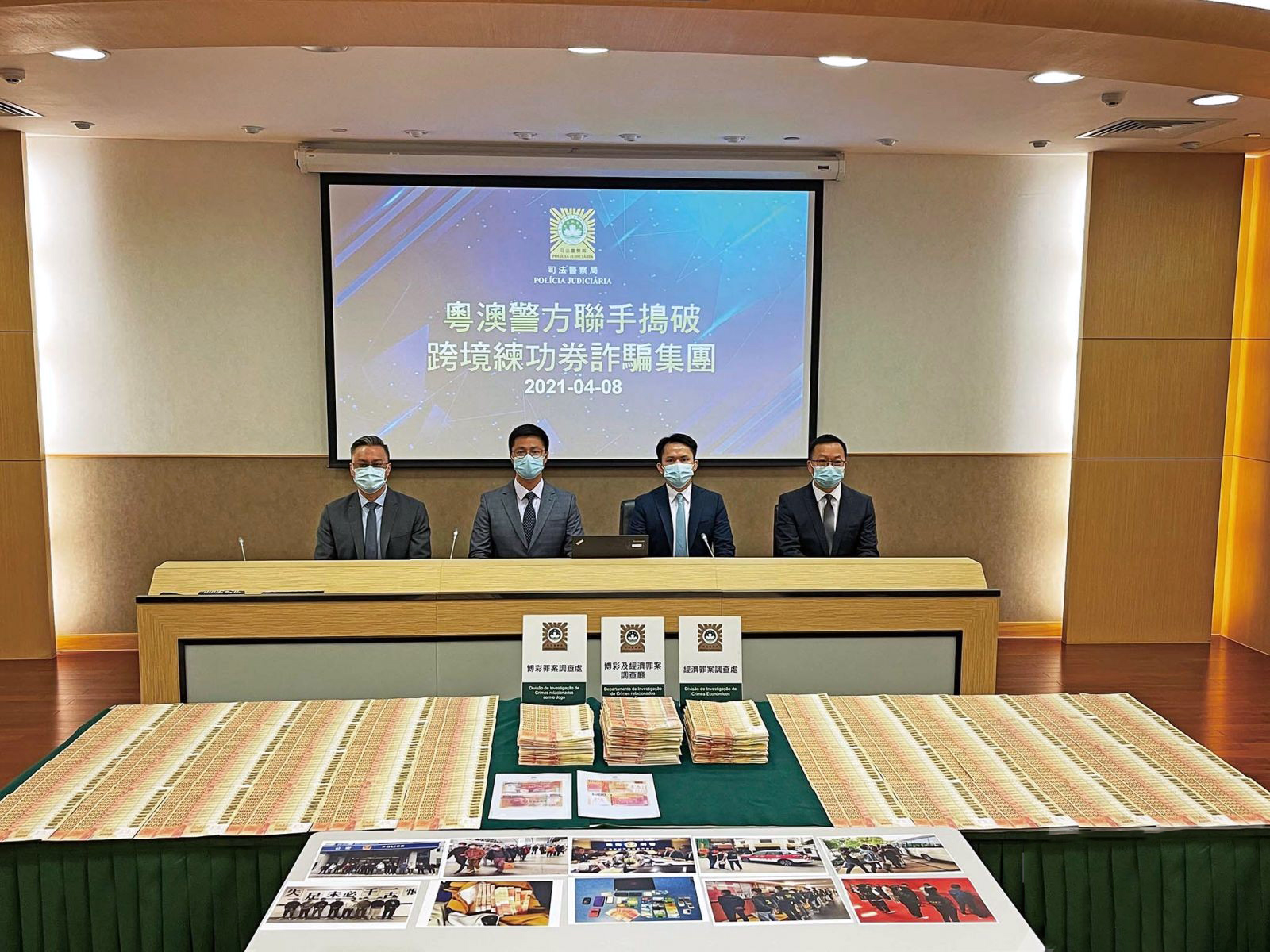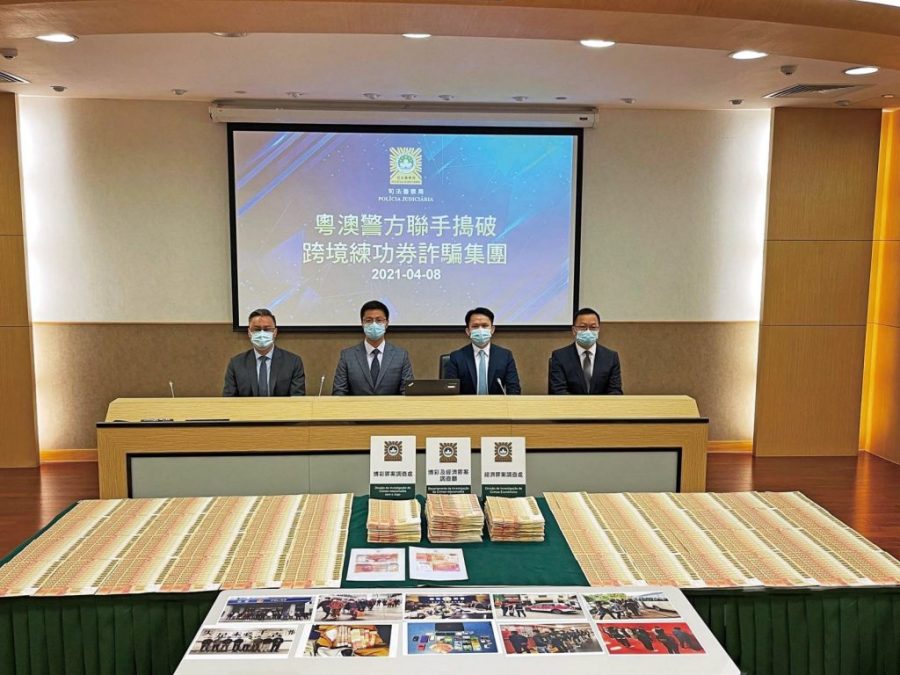Police have broken up a gang of fraudsters who exchanged their victims’ yuan into “practice banknotes” which are used as a training aid and not legal tender.
Three suspects are in custody in Macao and 21 in the mainland following a joint operation by Guangdong Public Security Bureau (PSB) and Judiciary Police (PJ) which started in March and ended last Saturday, according to PJ spokesman Leng Kam Lun.
The three unemployed suspects arrested in Macao over alleged frauds totalling RMB 380,000 are: a 37-year-old man surnamed Bai fraud; a 36-year-old man surnamed Yan fraud; and a 30-year-old man surnamed Peng.
According to Leng, the 21 mainlanders arrested by the mainland police are aged between 19 and 35, comprising one from Jiangxi, nine from Jiangsu, five from Shandong, four from Zhejiang, and two from Hunan, and are believed to include the gang’s ringleaders, The Macau Post Daily reported.
Leng said that the number of fraud cases involving HK$1,000 denomination practice banknotes has risen sharply in Macao since last October. The gang obtained the practice banknotes from its members in Zhuhai and used them to defraud its victims in Macao.
Other gang members used smartphone apps to find clients in casinos or hotels wanting to exchange yuan into Hong Kong dollars, and then notified their fellow gang members in Macao to meet them.
The gang members usually told their clients that they needed to be extra careful and therefore only showed the HK$1,000 practice banknotes from a distance or wrapped in cling film, to make their clients mistakenly believe that the banknotes were genuine, according to Leng.
Leng said after the clients transferred yuan into the gang’s mainland bank accounts via smartphone online banking or payment by a third-party, the gang members handed the practice banknotes to the clients who sooner or later realised that the notes weren’t genuine as the Chinese characters 練功券 (“practice note”) was printed on the notes.
Practice notes are generally similar in size, shape and colour to circulating banknotes and are used for training bank tellers, cashiers and staff at currency exchanges, but are not legal tender.
According to Leng, the gang mainly operated in the mainland and hired new members through a recruitment app. The newly hired members smuggled the practice banknotes from Zhuhai to Macao.
Leng said that the PJ Judiciary Police had informed the PS about the wave of practice banknote fraud cases detected in Macao.
The ensuing cross-border investigation revealed that the gang members were based in several provinces and cities in the mainland. The gang was well organised, and each member had a specific role to play, Leng said, adding that the members were well trained in avoiding detection by the police
According to Leng, the mainland police swooped on 25 March and arrested 21 mainlanders in four provinces and five cities, namely Zhongshan in Guangdong province, Weifang and Linyi in Shandong province, Taizhou in Zhejiang province, and Yancheng in Jiangsu province.
Leng said that the PJ acted the same day and dispatched 22 officers to casinos and areas nearby in Taipa. PJ officers intercepted 125 mainlanders, 103 men and 22 women, allegedly involved in illegal currency exchange deals.
A total of 22 people were taken to a police station for further investigation and later transferred to the Public Security Police (PSP) to formalise the termination of their stay in Macao.
Police concluded that the gang was involved in at least 73 practice banknote fraud cases totalling about MOP 10 million. Leng also said that 103 people were believed to have been involved in the 73 cases.
He added that Bai, Yan and Peng have been transferred to the Public Prosecutions Office. Gang members were paid between RMB 200 and 1,000 for each successfully completed practice banknote deal.
Guangdong and local police are continuing their investigations into the case which may involve even more practice banknote fraud cases.
Leng said the police believe that the gang had been operating since last year with at least 100 members.






